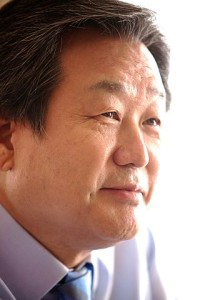South Korea Considers Electoral Reform
In preparation for next year’s general election, South Korea is considering a new candidate nomination system. This system, modeled after the open primaries in the United States, is designed to give the public the opportunity to choose a candidate of the party of their choice even if the voter is not affiliated with a political party.

Kim Moo-sung, the leader of the ruling Saenuri Party, proposed the idea to change the electoral system in South Korea earlier this year. In South Korea, the candidates for all elections are nominated by the party leaders. Accordingly, politicians who hope to be nominated often seek backing from the party leaders. Kim pointed out that this political culture has led to the rise of intra-party factions, and he intends to end the factional feud through the open primary system. By allowing the public to nominate the candidates for the elections, the proposal aims to increase turnout in the general election.
Some critics claim that this new system favors incumbents over the newly emerging politicians. Pointing at the United States as the example, critics say the public would be more likely to nominate candidates based on familiarity. Others have raised the concern that some people might vote in the opposite party’s elections in order to nominate weak candidates and increase their side’s chances of winning.
Furthermore, the leaders of the opposition party, the New Politics Alliance for Democracy, criticize the open primary system for undermining the “strategic nomination” system. The strategic nomination refers to nominating popular and non-political figures (such as academics, well-known journalists, etc) as candidates to boost the image of the party. Unlike the normal candidates, these nominees do not appeal to the constituents of a particular district, but to all supporters of a party in general. If the open primary system is adopted, it would become almost impossible to strategize such nominations.
The debate over the possible electoral reform became more controversial when Kim proposed the “secure number” method. In this method, phone companies send randomly generated disposable numbers to the parties, and the parties will use the numbers to call the voters and ask for the candidate of their choice. The main argument against this idea is not so much about the security of these numbers, but the validity of the results, since this system favors young voters over more aged ones who are skeptical about using cell phones for voting.
Calling the “secure number” method a blow to democracy, many politicians from both inside and outside of Kim’s party speculate that Kim’s idea is not motivated by the will to end the factionalism, but by his ambition towards the presidential election in two years. Many critics in South Korea point out that Kim, who is not a member of the faction centered around President Park Guen-hye, is using this platform to consolidate his power. On this issue of the open primary and the “secure number,” Professor Min Koo Choi of the Department of the East Asian Languages and Culture at Georgetown University commented that although an open primary system could divert some focus away from the party-centered politics, this scheme is simply another power game and a product of the politicians’ ambition to win the next election.

